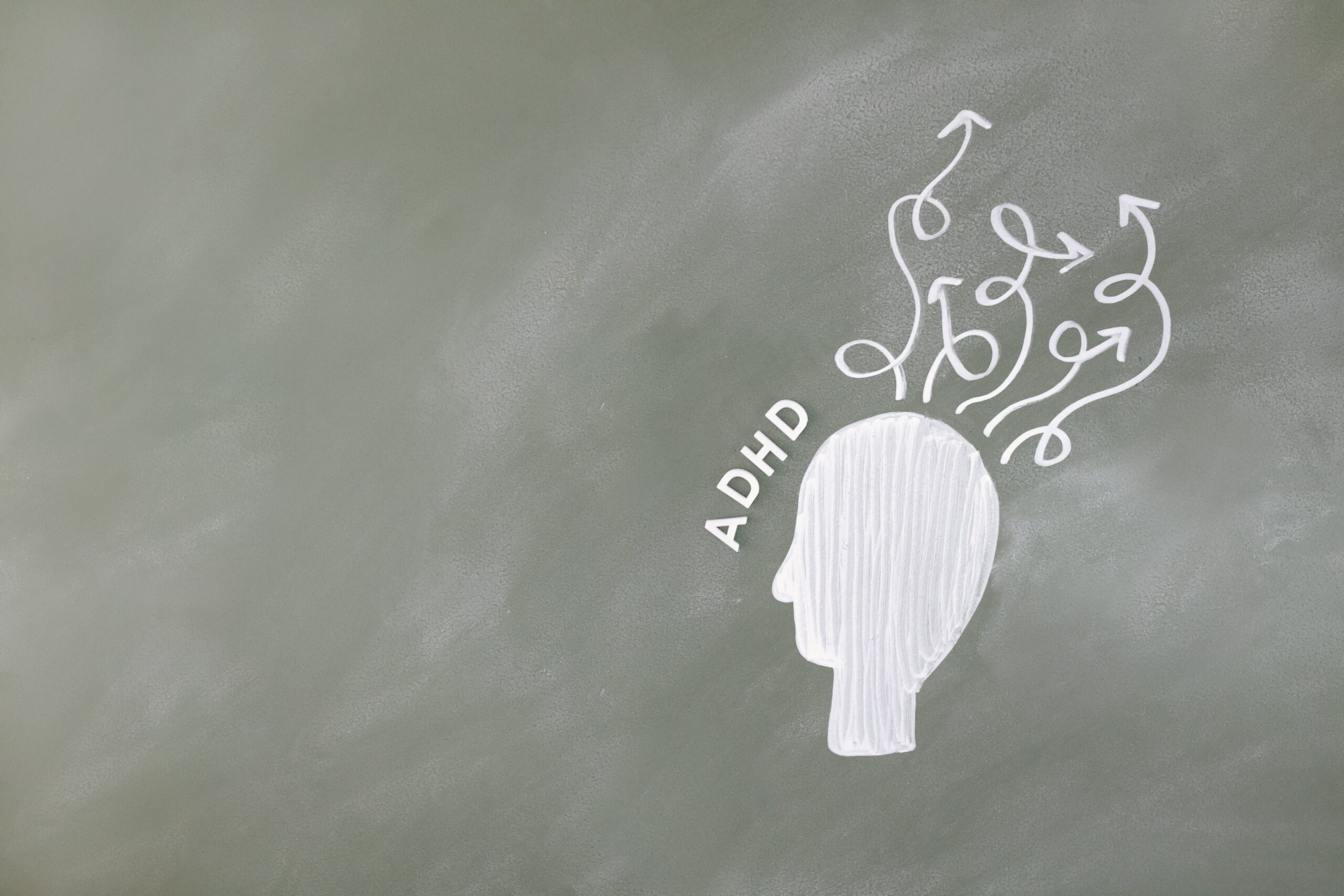
Ritalin and Adderall
Let’s talk about Ritalin and Adderall. A couple of weeks ago, I was drawn in by what at first seemed like nothing more than celebrity gossip. A vast number of powerful people, including many of the rich and famous elite, had been accused of using fraudulent means to get their children into college.
As the story progressed, more and more absurd details emerged. Some parents had photoshopped photos to make it look like their children played sports. A sports coach was one of the biggest facilitators, “recruiting” these youths for what are actually top-tier sports teams. What’s worse is that one of the youths fraudulently admitted into college, had expressed time and time again that she didn’t even care about school. It was something her parents wanted, not her.
The Rest of the Story
The scandal caused some amusement at first, but amusement soon turned to anger. These were some of the most privileged youth in the country. They had been sent to the best private schools, had private tutors throughout, and had access to resources most students only dreamed of having. Why did they need to go to elite colleges in the first place?
Personally, I wasn’t surprised. Our society puts a lot of pressure on youths to go to college, even when it’s not at all what they want. While some parents have the riches to make it happen regardless of academic performance, most do not. And because of this, there is a much greater scandal. One that is mostly silent, but causes harm to far more people.[1] [2]
The Scandal No One Talks About
The Manhattan location of my company, is at a very interesting crossroads, a nexus between several top universities and the tech companies that hire their graduates. We are surrounded by high achievers and their hard-charging companies.
However, so many of these people come to Adam Banks Recovery for help. Just as celebrity parents believed their children needed to go to prestigious colleges, these young adults faced similar pressure. But they didn’t have the money to simply “cheat.” They are instead left emotionally spent by years of pressure to achieve high test scores. Pressure which has led them to rely on stimulant medications such as Adderall, Ritalin, and other prescription meds designed to help with focus.
Addicted to powerful stimulants
Stimulant medications are very effective at helping people to focus, to get the extra boost needed for studying for an exam or to perform at work. These medications are seen as performance enhancing, much like steroids are for athletes, except that they are perfectly legal when prescribed. However, much of the time these students don’t have a recent diagnosis for ADD or ADHD. Rather, they started taking medication in order to focus better and get the high marks they felt they needed to achieve.
Once someone gets a performance boost from a stimulant, they want to use it again for the next test, or the next project, or the next late night cram session. This loop continues indefinitely. Stimulants are traded among friends on college campuses with no stigma attached. They’re being used in pursuit of academic achievement, after all. Studies suggest that between 7% and 33% of college students have used these drugs as performance enhancers.
What’s The Problem With ADHD Medications?
A full 25% of our patients at my company in Manhattan are under the age of 27, and have landed great first jobs at tech companies which are household names. By the time these young adults come to us, they are in rough shape. They’re exhausted, anxious, and living with the belief that they don’t deserve their place in college or their jobs. There’s a number of reasons for this.
For one, ADHD medication has side effects. This is even when taken as prescribed. Children and adults who take it may experience trouble sleeping, loss of appetite, tics, and, for adults with a predisposition to heart problems, irregular heartbeats or even seizures. 48% of subjects of one study who took ADHD medications experienced side effects like sleep problems and mood disturbances. Another study revealed that 6% of children on ADHD medication suffered psychotic symptoms, including thoughts of suicide.
ADHD is still one of the most over-diagnosed afflictions
ADHD is notoriously over-diagnosed in school children[1] [2], especially those in a place of privilege. College students, as well as adults with high-pressure jobs, often don’t take ADHD stimulants as prescribed. They take them at higher dosages, sometimes even by snorting or injecting them for a powerful boost. In addition, due to the short-lived feeling of euphoria they can induce at high doses, many start taking them recreationally, off label, and trading them among peers. Over time, the body gets accustomed to the stimulant and we see patients using higher and higher dosages. This can lead to difficulty sleeping, which is often treated by sleeping pills or tranquilizers. In the long run, a cycle of addiction can develop.[3]
Thus, while ADHD stimulants may improve academic performance for students without ADHD (although some evidence suggests otherwise[3]), they come at a cost. Use of stimulants can lead to staying up late into the night studying or working, skipping meals due to a suppressed appetite. They end up undernourished and fatigued, unable to balance study with a healthy lifestyle. They experience paranoia and begin to fear that they won’t cope without these medications.
We’re raising a generation of addicts
They become addicted[4], and like most addictions, it takes hold both physically and mentally. Their bodies need more and more of the stimulants to function, while simultaneously sustaining serious damage. Meanwhile, the thought of withdrawing from the substance becomes increasingly frightening. They have started relying on the stimulant for energy and feelings of happiness.
The physical effects can be so bad that, according to data released for 2010, 8,000 college students had ended up in the emergency room due to abuse of ADHD stimulants that year alone. This included a number of deaths.
Of course, the mental effects can be as bad. Instead of increasing their focus, increased use of stimulants causes the substance user loss of clarity, fear of not getting their fix, and difficulty feeling pleasure or happiness at all. Instead of improving their focus or mood, addicts need the substance just to remain close to what they consider normal.
What Can We Do About Ritalin Addiction?
It’s clear that long term use of ADHD medications can be harmful and addictive, especially when used by individuals who do not suffer from ADHD. However, it is a lot less clear how to solve the problem, especially since we inevitably come up against the interests of huge pharmaceutical corporations.
There are some steps we have the power to take, that have the potential to make a massive difference.
Prescription drug addiction awareness
The most basic step we can take is to raise awareness of the risks of ADHD medication. Most parents who seek these stimulants out for their kids, as well as the myriad young adults who seek them out for themselves, don’t realize there is a problem at all. The rationale is that something prescribed to young children to better perform and behave in school is surely not dangerous. There is no stigma around swapping stimulants between friends, as for some people, the idea that Ritalin can be addictive is equivalent to suggesting gummy vitamins are being sold on the black market.
It is important that we spread the word that these are serious drugs, used for treating a real illness. They are not harmless performance enhancers, and nor are they safe for recreational use. The many patients that we see that “only” take these medications are a testament.
Mental Health Support For Youths
In a perfect world, we could eliminate the reason people decide to use these stimulants in the first place. Stop believing that standardized test scores are an indicator of a person’s value. We would stop thinking that without a college degree, you’ll never be employed. We would convince helicopter parents that their children will be okay even if they do not finish top of the class or get accepted into a prestigious college.
Unfortunately, those attitudes are too deeply ingrained in our national psyche[5] to disappear anytime soon. However, we can provide support to those who are struggling to carry the weight of parental and societal expectations. Psychiatry has gotten a bad name for diagnosing any and every troubled child with a mental disorder, and prescribing medication before trying anything else. But mental healthcare goes far beyond what psychiatry has to offer.
We need to help kids learn healthy coping mechanisms
Ideally, every school should have at least one educational psychologist, and teachers should share coping methods with their students. In the absence of intervention from the school, we need to look out for ourselves, our loved ones, and those around us. And, most importantly, there must be somewhere for struggling youths and young adults to go.
I started Adam Banks Recovery to make mental healthcare more accessible. For too long, treatment has been hard to find, or patients don’t know where to turn. My approach is therefore to streamline the whole process, and to be available so that mental health care is easy to find and easy to start.
Changing Perspectives
Teens and young adults are under increasing pressure to score highly on tests and get the best first jobs out there. When they can’t handle the pressure, they turn to stimulants like Ritalin and Adderall to try and help them. Inevitably, the meds become a much greater problem than the one they’re meant to solve. Our goal should be to give youths the means to cope with the pressure, rather than the futility of trying to live up to it, so that they don’t feel they need to resort to what seem like quick fixes.
The college admissions scandal that no one is talking about is a far more widespread problem than the misguided actions of the rich and famous. We need to change our perspectives of success and, most urgently, we need to stop promising illusive quick fixes that only end up doing harm.
[1] Bruchmüller K, e. (2019). Is ADHD diagnosed in accord with diagnostic criteria? Overdiagnosis and influence of client gender on diagnosis. — PubMed — NCBI. [online] Ncbi.nlm.nih.gov. Available at: https://www.ncbi.nlm.nih.gov/pubmed/22201328 [Accessed 5 Apr. 2019].
[2] Medicine, U. (2019). Is ADHD overdiagnosed and overtreated? — Harvard Health Blog. [online] Harvard Health Blog. Available at: https://www.health.harvard.edu/blog/is-adhd-overdiagnosed-and-overtreated-2017031611304 [Accessed 5 Apr. 2019].
[3] Kortekaas-Rijlaarsdam, A., Luman, M., Sonuga-Barke, E. and Oosterlaan, J. (2018). Does methylphenidate improve academic performance? A systematic review and meta-analysis. European Child & Adolescent Psychiatry, 28(2), pp.155–164.
[4]Compton, W. and Volkow, N. (2019). Abuse of prescription drugs and the risk of addiction. [online] Available at: https://www.sciencedirect.com/science/article/pii/S037687160600055X [Accessed 5 Apr. 2019].
[5] Kadison, R., & DiGeronimo, T. F. (2004). College of the overwhelmed: The campus mental health crisis and what to do about it. San Francisco, CA, US: Jossey-Bass. Available at: https://psycnet.apa.org/record/2004-18956-000 [Accessed 5 Apr. 2019].
About Adam Banks
Adam Banks is a certified interventionist and the owner of Adam Banks Recovery. After receiving an MBA from the University of Chicago, Adam built a company acquired by United Health Care. His discipline and attention to detail comes from his former career as an airline pilot, holding an ATP, the FAA’s highest license.
Today, Adam is dedicated to helping others achieve long-term sobriety. His work has guided executives, pilots, and physicians on paths to recovery. Adam brings families together through a loving and inclusive approach.
Adam has authored four books on addiction. His recent work, Navigating Recovery Ground School: 12 Lessons to Help Families Navigate Recovery, educates families on the entire intervention process. He also offers a free video course for families considering an intervention for a loved one.
Adam is available for alcohol and drug intervention services in New York, Long Island, the Hamptons as well as nationally and internationally.


